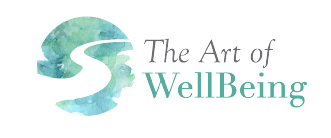Boost Energy & Creativity With a Micro-Practice
I believe the remedy for stress, overwhelm, and exhaustion is smaller than you think. For example, if you google the phrase “micro-habits,” you will find lists of 10, 21, even 80 examples “that will transform your life.” These small daily habits take very little time but provide amazing shifts in mood, perspective, and positive energy.
I choose, however, to use the term “micro-practice” rather than micro-habit because I don’t think you have to perform your practice every single day to get transformative results.
Keep these 3 ideas handy and pull one out when you are tired, discouraged, overwhelmed, or dragged down by that mid-afternoon slump:
Practice the Pause. When life and work are intense and the to-do list is never ending, it seems counterintuitive to pause. Yet pausing for as little as 60 seconds can release the tension in our bodies that blocks clear thinking. Here are some pause options you can practice today:
Try ratio breathing: Take 60 seconds to inhale and exhale through your nose. Make your exhale twice as long as your inhale by inhaling slowly to the count of 4 and then exhaling slowly to the count of 8. You should be able to get 4 or 5 rounds done in 60 seconds. Voila! You’ve lowered your heart rate and blood pressure in one minute!
Take 5 minutes to practice prayerful meditation twice a day. You can begin by setting alarms to remind yourself when it’s time to start. One of my clients sets her first alarm for the end of her morning work and a second alarm for when she’s transitioning to a different work setting in the afternoon. These pauses are times meant for silence and listening, not speaking. You can begin just with a brief minute or two; and if it’s working for you, you can increase the length of the pause over time.
Give yourself permission to daydream. One of the resources in the Art of WellBeing coaching course is a psychologist who cites research about the positive, creative potential of daydreaming or staring out the window. She invites us to stare out the window every day to increase creativity. Go ahead then and let your mind wander and lose yourself in thought— or, as they said in the mid-16th century, “to woolgathering.”
Practicing the Pause is good for dealing with difficult emotions and allowing ourselves to experience them and move on. One way I’ve learned to deal with challenging emotions is to: a) Notice what you’re feeling or experiencing in your body, b) Give it a name, and c) Get curious about it. Say to that challenging emotion: Who are you and why are you here? Or, if you prefer: God, what are you trying to teach me? When we pause, notice, ask, and listen, we will find that we know what we need.
Practice Being Playful. When is the last time you laughed out loud, sang a silly song, danced in your kitchen, or skipped through a puddle? Brené Brown says that play is at the core of innovation and creativity. Play releases us from linear thinking so we can make unconventional connections. Being playful make us curious, creative, courageous, and resilient. I recently led a group of overworked judicatory leaders in a children’s song complete with silly motions. They immediately noticed the elevated energy in the room. A man from that group shared that his wife sends him funny videos 3 or 4 times a day. He suggested that the team watch one of these together on a break. When asked how they would choose a micro-practice of play, another leader in this group said he was going to practice “sauntering” when he walked down the hall. Some more playful suggestions include shaking like a wet dog when you want to shake off a stressful interaction at work; or, like the Na’vi beings in the Avatar movies, try growling when you are angry or frustrated. Stretch your hands into claws when you growl and notice the satisfaction you feel!
Practice Moving. Recent studies suggest that walking for only 2 minutes following any meal helps to control the blood sugar spikes that can wreak long term havoc on our bodies. Of course, if you can walk 10 minutes, it’s even better. But if you are going to walk 25 minutes a day, try walking for 5 minutes 5 times a day! It’s amazing for energy and wellbeing. And leave your devices at home!
These and other micro-practices can help make a macro-difference in your life. Try one out right now— no matter how quick or small of an action, we can all use a new source of refreshment in our energy, creativity, and resilience.
